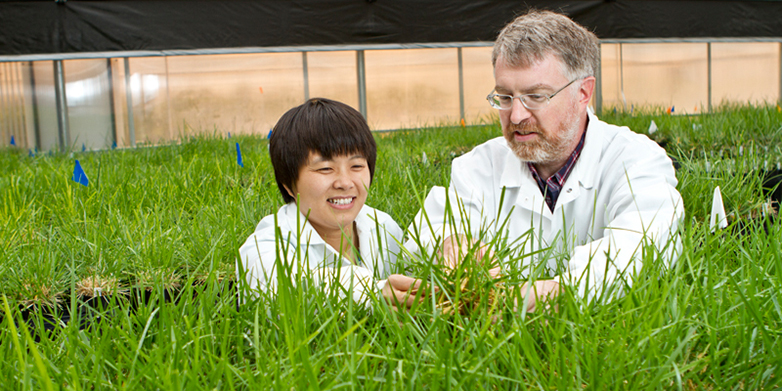Using force to stifle dialogue
In a comment on ETH News, ETH President Lino Guzzella is strongly disapproving the attack on a plant breeding congress.

“I disapprove of what you say, but I will defend your right to say it.” Although Voltaire himself never uttered these words, they nevertheless capture the spirit of his thinking and thus provide us with a shining example of some of the most important achievements of Enlightenment philosophy: freedom of expression and the supremacy of reason over violence. Anonymous individuals violated both of these fundamental principles yesterday at ETH Zurich. This is unacceptable. The University and the scientific community stand together in condemning such attacks.
external page EUCARPIA has dedicated itself to the science of plant breeding throughout its 60-year history. The organisation conducts a general congress every four years, bringing researchers together to present their latest results and discuss the problems and challenges they have encountered. Scientists work with potatoes, fruit, grasses and many other plants that are vital to human nutrition, investigating ways to improve how plants are produced. They are particularly interested in how to increase yields and nutritional value, while simultaneously reducing the use of pesticides, fertilisers and water.

EUCARPIA’s contributions become ever more important when we consider how many people around the world suffer from under- or malnourishment. This line of research plays an especially important role for impoverished countries, where populations are growing very quickly. We should welcome every bit of progress.
More than 400 conference participants from all around the world came together to contribute their intelligence and energy to advancing the science of plant breeding. They employ an impressive array of methods, ranging from the fundamentals of molecular biology to field experiments conducted on farms. Experienced researchers and their up-and-coming junior colleagues engage actively in scientific dialogue, debating the issues and sharing their new theories and experimental results.
But a small group of people used violence to try to prevent this from happening: they forced their way into the Auditorium Maximum, threw faecal matter at congress participants, and caused property damage. Instead of joining the discussion, using experiments to test their arguments, listening to and critically evaluating the ongoing developments, they forcibly and temporarily stifled peaceful dialogue.
Engaging in such disruptive behaviour under a cloak of anonymity flies in the face of constructive dialogue. ETH Zurich fosters nuanced and critical discussion about the complex issue of global nutrition. We must see to it that this dialogue continues freely.
I would call upon all researchers to speak out against such actions wherever they arise. ETH, like all universities, is a place where people come to discuss ideas freely, in an atmosphere of mutual respect. A place where experimentally validated arguments hold sway, and ultimately a place where we are developing solutions to the problems facing humanity. It is absolutely vital that we uphold these values.
Comments
No comments yet